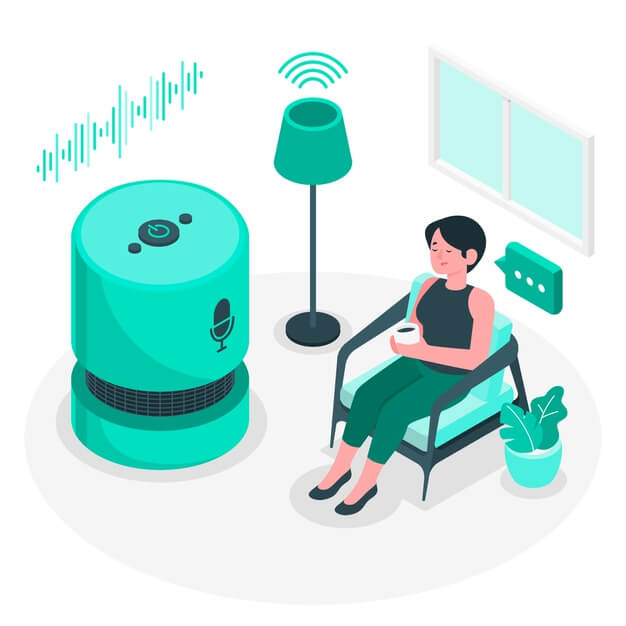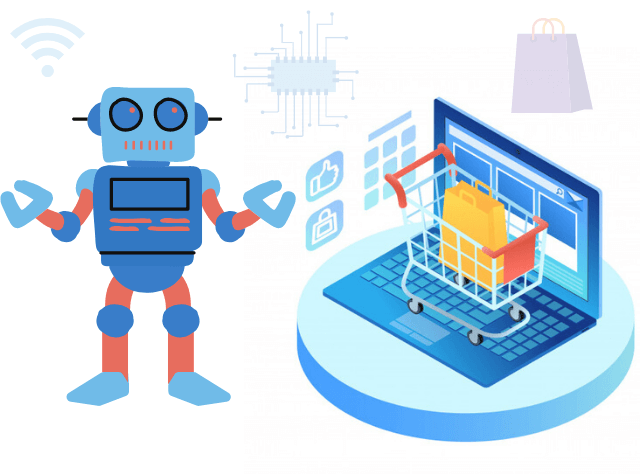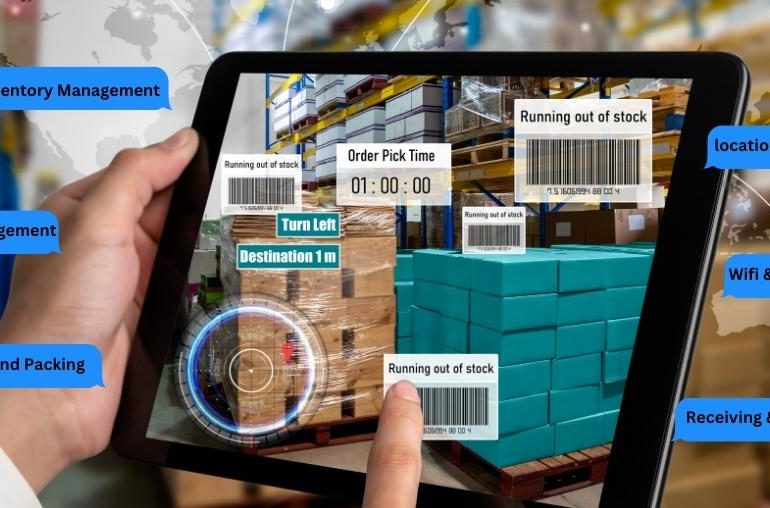Last Updated on January 21, 2022
Artificial intelligence has unleashed the true potential of the ecommerce industry and opening many new opportunities in improving the customer experience, generating new business, and has a better understanding of business. The ecommerce industry is continuously evolving and gradually incorporating artificial intelligence into their business decisions and strategies. But how AI is becoming a game-changer in the ecommerce industry? How it helps the ecommerce business to scale up?
In this article, we are going to answer all such queries and will help you in knowing the true potential of artificial intelligence. What we will cover:
- What is Artificial Intelligence?
- Stats and Facts about artificial intelligence
What is Artificial Intelligence in eCommerce Industry?
Artificial intelligence is enabling companies to predict, sense, and automate. It can improve user experience and increase brand reputation. It is helping the startups, manufacturers, and retailers to set a new example in the industry. It is having enormous implications in the way retailers sell their products & services and the way consumer buys them. AI can solve real-world issues that ecommerce businesses are facing.
Some Stats About AI in Ecommerce Industry
In 2016, AI-driven the business of $8 billion and is expected to reach $49 billion by 2021, in a wide range of ecommerce industries. As per the Gartner, by 2020, more than 80% of customer interaction in the ecommerce industry will be handled by AI. You would be surprised to know that 20% are ready to purchase things from a chatbot, and these customers can spend up to $350. 40% of customers use chatbots to check new discounts, offers, and deals. Recently, Google invested 400 million euros in taking over an artificial intelligence company, Deepmind. Voice search, another tool of AI can take over the searching.
Also Read: Future of eCommerce: How eCommerce Will Change in 2020?
The adoption of AI-driven intelligent automation in retail and consumer product industries is expected to increase from 40% to 80% in the next 3 years.
Here are some of the applications of AI which are benefiting the online ecommerce stores:
1. Advanced Visual Search
The AI-based visual search technology uses real-world images such as snaps, screenshots, internet images, etc. for online searches. It firstly understood the content of the image and then comes up with the relevant results. It is helping the ecommerce business, especially for clothing and home décor industry.
Giants like Google, Amazon, Pinterest, Bing, and many ecommerce owners have started to develop their own visual search engines. You must have heard of Google Lens which can detect over 1 billion objects. Some of the famous retailers that are leveraging the advanced AI-based visual search are ASOS, eBay, Walmart, Levi’s, Disney, Salesforce, Snapchat, Ikea, and Lifestyle.
2. Personalized Recommendations
You must have observed that in ecommerce stores such as Amazon, when you wander through shoes, then you can many recommendations on your dashboard of the similar shoes you were looking. And this personal touch by the ecommerce store makes you feel valuable and an important customer.
These personalized recommendations by AI enhance the customer experience. The product related to the search is carefully tracked and accordingly, the most appropriate suggestion reaches users. Search engine analysis, along with AI identify the user’s priority. The recommended items are always based upon user’s recent activity such as frequently viewed products, considered or purchased with the one the customer is currently considering.
“Do you know that recommending products in the shopping cart based on user’s purchasing or browsing behaviour can increase your conversion rate by 9 times?”
3. Voice Assistance

As AI is getting advanced, many new technologies are emerging in the ecommerce industry for better customer experience. Voice assistance is foremost of them. It gives a smooth experience to users to find products and shop them. The customer who finds typing quite a hassle can easily shop through the voice search. If you have a smart voice assistant such as Amazon Alexa, you just need to find the product by speaking to it and then can make an order. Orders for the Echo were seven times more on Prime Day (Amazon’s biggest shopping day) in 2017 than they were the year before. Since smartphones and people are now hard to separate, a voice interface can be the next leap in ecommerce evolution. Ordering and shopping using natural speech is faster and allows people to do other things instead of focusing on texting.
Also Read: How To Develop An eCommerce Website?
4. Automated Product Description
The product description on an ecommerce site can make it big or can destroy. Regardless of the image of the product, if the description of the product is not filled properly, you can lose the trust of your customers. However, manually entering the product description through your employees can be a very long & tedious process. It will also result in increased employee costs and have significant chances of human prone errors. However, AI can resolve this problem by automating the process of writing details of the product.
AI will not only copy the details of the product from the manufacture but will automatically find all the latest product-related relevant information. Since AI can see which details of the product are most frequently included in keywords, AI content software understands just the right details which are to include to promote Wi-Fi-enabled food processors.
The benefits offered by the automated product descriptions are:
- AI can create multiple product details per hour
- Products description are not prone to any error and include demanding details
- AI can also check the effectiveness of the description and can make certain changes if required.
- Dynamic pricing that maximizes revenue and sales volume
5. Smart Searches
The search functionality of an ecommerce site is the most noticeable thing by the customer on the site. It can be a significant factor in your conversion rate. Nearly 88% of the customers search their product on an online store. But often a slight spelling mistake can make you lose your customers.
A single typo error can result in “We do not find any such item”, however major ecommerce giant such as Amazon, Flipkart, eBay, and others have overcome this problem. Your ecommerce site is in trouble if your search bar can’t suggest the correct alternatives. A smart search is not limited to correct a spelling mistake.
If you have a huge variety of products on your ecommerce store, then there may be chances some of them will never get reached, while having a good potential of a sale. Autosuggest feature of AI-based smart resolve this problem. It gives your customer a preview of other relevant products you have in store.
You can also showcase other popular searches to highlight your highest-rated and most sought-after products in a non-intrusive and natural way.
Learn More: Develop an eCommerce Mobile App – Complete Guide
6. Internet of Things (IoT)

Internet of Things or IoT has been the latest buzz. It is enabling devices to exchange data with each through the internet. It is also helping retail and ecommerce businesses to make smooth their operation. IoT helps ecommerce by inventory management, warehouse management, supply chain management, and providing a better customer experience.
Using IoT sensors and RFID tags it is possible to maintain the inventory in real-time. You can monitor and track the inventory items, hence eliminating human prone errors in reordering items. Information like product type, manufacturer’s name, the expiry date of the items, and their batch IDs can be automatically stored in the system without human intervention.
IoT is not limited to optimizing inventory but also helps you eliminate the over-stock of items. Temperature sensors can give you info & notifications about perishable products. Amazon uses warehouse robots to enhance the effectiveness of its picking and packing process. These robots can move at 8 km/h and load parcels of over 300 kg for now.
IoT can help in customer experience by providing insights about the products which are popular on social media. You can also target a specific group of customers using IoT. It can recognize the shopping pattern in search trends and online browsing.
7. Automation in Warehouse

Warehouse automation has been in recent years of requirements in ecommerce. Features like same-day or next-day delivery have become a common consumer expectation which has greatly impacted the requirement of warehouse automation. In ecommerce, the order volumes are increasing, turn-around time is decreasing, SKU numbers are also proliferating, while the order sizes are decreasing. To meet such huge demand, the warehouses are eliminating the traditional practice of clipboard-bearing, forklifts, and stock managers. Instead, they are getting driven by AI-based smart robots, which tout stock items 24×7 and continue to work without a lunch break. There is one thing common between humans and these robots, both like to talk. However, unlike human beings which rather gossip, AI-based smart robots prefer to talk with their warehouse management software.
When a customer makes an order, the information is sent to the respective warehouse software, the software communicates with the robot, and then the robot is sent to take the purchased goods out of stock, box them, and prepare them to ship. Smart robots can do everything but drive a delivery truck. But who knows the future…
The other benefits of warehouse automation are:
- Better accuracy
- Eliminates the potential threats of human injuries in the warehouse
- Fast stocking and retrieval
- Results in low labour cost
- A few chances of stock damage
Automated warehouse software products disrupt the warehouse industry as a whole. This is bad news for the forklift driver, but the good news for the ecommerce site owner.
Also Read: How to Develop a B2B B2C eCommerce Marketplace?
8. Cybersecurity

The cybersecurity experts are not fully convinced to replace AI for handling cybersecurity, but yet AI is extending its roots in cybersecurity. Here are some of the instances where AI is helping in cybersecurity:
- AI is getting used for updating security databases. It can analyze logs from various sources, artificial intelligence can detect when new threats are imminent. It can also find malware and spyware trends by analyzing data across multiple channels.
- AI can identify any unusual activity. It can detect large-scale malware movements. It can use certain parameters to help determine whether or not it may indicate a threat or whether it is a false alarm.
- AI can pinpoint potential weaknesses, bugs, and security flaws. For example, machine learning can be used to detect when untrusted data has been sent from an application.
9. Data Management
As the adage goes “Data is the new oil”. Hence, you as a site owner should maintain your customer data wisely. The data such as purchasing details, customer profiles, and transferring other information freely tax traditional database software, but not AI. AI can manage your data effectively. By placing product descriptions, images, and customer data in raw form, artificial intelligence does not need to sort through data structures while using data for different web applications.
The benefits of AI in data management are:
- No restrictions on handling data
- Greater Flexibility
- Storage of different type of data in a common location
- No affect in scalability
- Potential-valuable data
10. AI-powered e-mail Marketing
E-mail marketing is still having a great impact on ecommerce businesses. With AI-powered e-mail marketing, campaigns can be more interactive. The benefits of the AI in email marketing are:
- Emails don’t seem automated in fact appears more humane
- A better appeal in retaining the customers
- The timings of the email can be automated as per the geographical location of the user
- Intelligent analysis of customers based on responses
- Changes in strategy as per the feedback from customers
Wrapping Up
The advent of AI in ecommerce is currently having no limits whether it is serving customers in a better manner or maintaining the security of your ecommerce, it is having place everywhere. The ecommerce industry can become a game-changer and more efficient with the help of AI Solutions.
AI-based technology provides a personalized and consistent experience for all the users as well as brands and their services.
We provide the best AI-solutions and ecommerce development services to enhance your business and sales.






 USA
USA UK
UK Singapore
Singapore